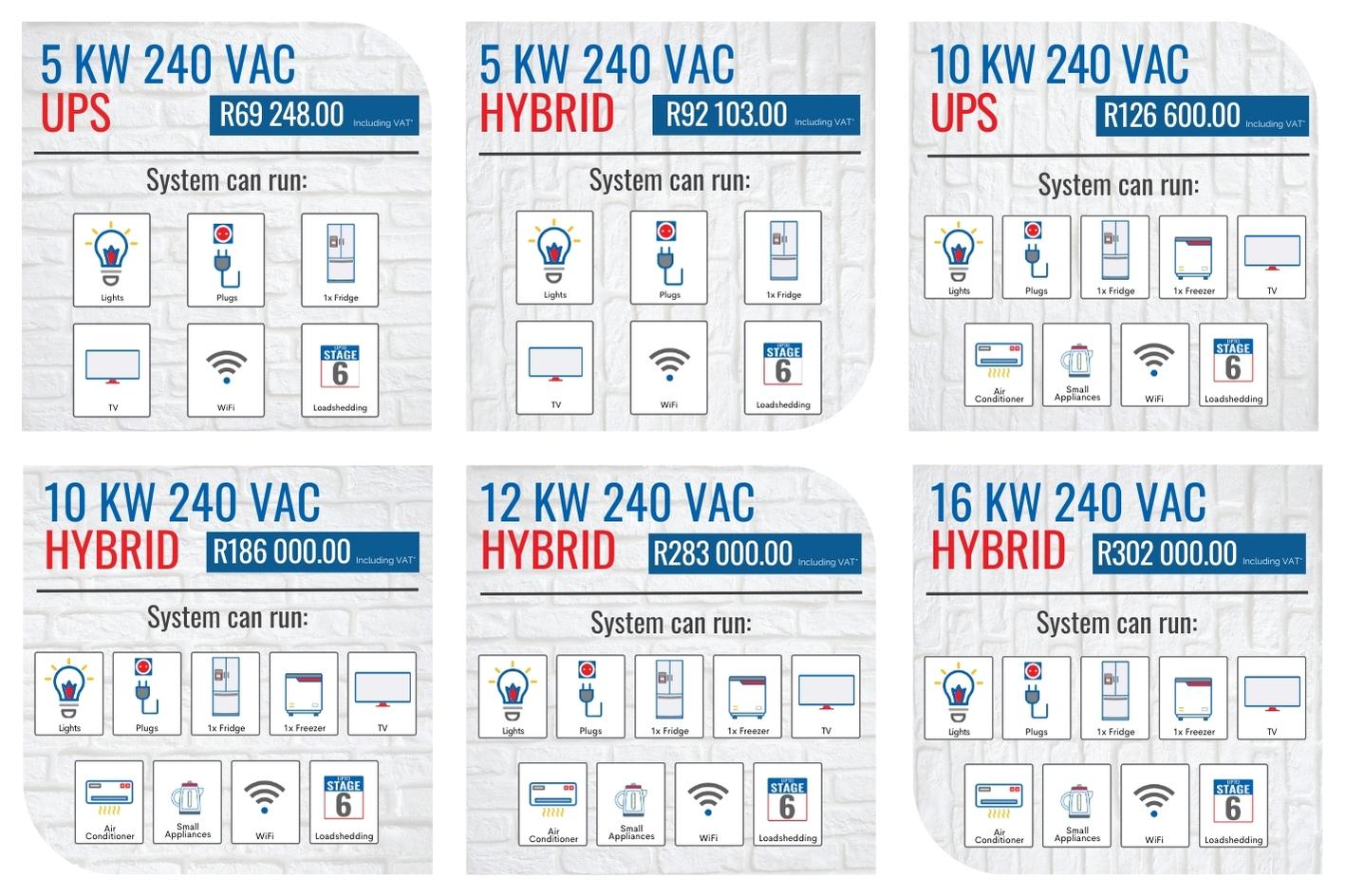Get In Touch
Head Office
Unit 1 Bush Hill Office Park, Jan Frederick Avenue, Randpark Ridge
Despite the appointment of a new minister of electricity and promises from the government that it will push forward with urgency in delivering on the energy action plan, South Africa’s load shedding outlook is worse than ever. What’s incredibly worrying about the data is that record levels of load shedding occurred over South Africa’s summer months, which tend to be periods of relatively low demand.
Winter months – which start from around June – typically see the highest demand. This puts Eskom and the government on a tight deadline to address the current energy generation crisis, either through proper maintenance or by adding more capacity to the grid, before the winter months kick in. If this isn’t achieved, demand will ramp up in winter as it always does, and Eskom will be forced to implement even higher stages of load shedding to protect the grid from collapse.
According to data from the Council for Scientific and Industrial Research (CSIR), 2022 overtook 2021 as the most intensive load shedding year on record, with more than four times more outages than the year before.
The year also far exceeded 2019’s stage 6 load shedding, the CSIR said. The collective in the three months of July to September 2022 was more load shedding experienced in any year before. December 2022 on its own was more load shedding than in any year before, it said.
These are not empty warnings, either. Despite assurances from authorities that load shedding will be managed over winter, energy experts, analysts and anyone who looks at the available data does not carry the same confidence.
Experts have warned for months that stage 7 and 8 load shedding is expected in the middle of the year. Using available data and plotting forward-looking trends, analysts anticipate that, without significant intervention, the country will even move beyond stage 8 in 2023. The alarm bells are ringing from within Eskom as well.
There is no way of knowing how long this situation will continue, or when we will be able to rely on the grid 24/7 again. Many of us have bought diesel generators to power the essentials in our homes during outages, but that solution is noisy and expensive, while contributing to air pollution and greenhouse gas emissions.
Solar power is cheaper than ever before, practical, and available
The simplest solution is a battery and inverter system, which will supply your essential electricity needs over a few hours to cover load-shedding, after which it needs to be recharged. But if you recharge it using grid power, you’re paying the same price for grid electricity, and then adding extra expense to store it up and use it when the grid fails to deliver.
That’s why it’s worth investing in photovoltaic solar panels that turn sunlight into electricity – whether you just want to recharge a battery and inverter system that provides power during load-shedding, or if you’re even considering going off the grid completely.
Start with OUR load-shedding solution
MultiNET Home Loans has a new solar product offering that can be tailored to your budget needs and household requirements. Most importantly these new solar solutions are not only available to current MultiNET customers who are processing a bond application, but to any consumer who needs a solar solution. MultiNET Home Loans have proudly partnered with an independent solar supplier offering 6 different packages allowing for an option that can suit not only one household.
Depending on your budget, it might make sense to start by installing a system just to cover your basic power needs during load-shedding. If load-shedding should continue or get worse over the next 10 or 15 years, you’ll still be spared the inconvenience, stress and lost productivity caused by power failures. MultiNET’s solar packages range from a 5KW right through a 16KW, we supply on both a hybrid and a UPS system.
![]()

It’s always best to seek expert advice on exactly what your home would need to become energy self-sufficient, so it’s important to find installers accredited by SAPVIA and who use only quality products. To ascertain what your household needs are complete our MultiNET questionnaire @ https://www.multinet.co.za/solarquestionnaire/ . We will generate your quote in no time!
Do not forget, Rademeyer says “For private households, individuals who install rooftop solar panels from 1 March 2023 will be able to claim a rebate of 25% of the cost of the panels, up to a maximum of R15,000.”
“This can be used to reduce your tax liability in the 2023/24 tax year. This incentive will be available for one year,”
To qualify, the solar panels must be purchased and installed at a private residence, and a certificate of compliance for the installation must be issued from 1 March 2023 to 29 February 2024.
MultiNET Home loans are now providing financing options for consumers, get in touch with a MultiNET Specialist for more information 0861 54 54 44, WhatsApp 061 537 8778 or visit www.multinet.co.za.
Head Office
Unit 1 Bush Hill Office Park, Jan Frederick Avenue, Randpark Ridge